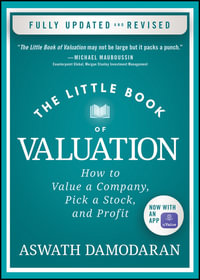
Boards at Work
How Directors View their Roles and Responsibilities
By: Philip Stiles, Bernard Taylor
Hardcover | 1 April 2001
At a Glance
Hardcover
RRP $234.00
$172.75
26%OFF
Ships in 7 to 10 business days
ISBN: 9780198288763
ISBN-10: 019828876X
Published: 1st April 2001
Format: Hardcover
Language: English
Number of Pages: 180
Audience: Professional and Scholarly
Publisher: Oxford University Press UK
Country of Publication: GB
Dimensions (cm): 23.39 x 15.6 x 1.12
Weight (kg): 0.43
Shipping
| Standard Shipping | Express Shipping | |
|---|---|---|
| Metro postcodes: | $9.99 | $14.95 |
| Regional postcodes: | $9.99 | $14.95 |
| Rural postcodes: | $9.99 | $14.95 |
Orders over $79.00 qualify for free shipping.
How to return your order
At Booktopia, we offer hassle-free returns in accordance with our returns policy. If you wish to return an item, please get in touch with Booktopia Customer Care.
Additional postage charges may be applicable.
Defective items
If there is a problem with any of the items received for your order then the Booktopia Customer Care team is ready to assist you.
For more info please visit our Help Centre.
You Can Find This Book In
This product is categorised by
- Non-FictionAccounting & FinanceFinanceCorporate Finance
- Non-FictionBusiness & ManagementOwnership & Organisation of Enterprises
- Non-FictionBusiness & ManagementBusiness Strategy
- Non-FictionBusiness & ManagementCorporate GovernanceRoles & Responsibilities of Company Secretaries
- Non-FictionIndustry & Industrial Studies
- Non-FictionBusiness & ManagementManagement & Management Techniques

























